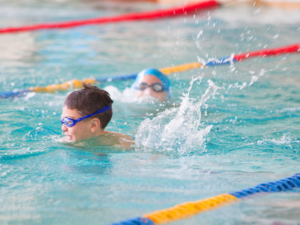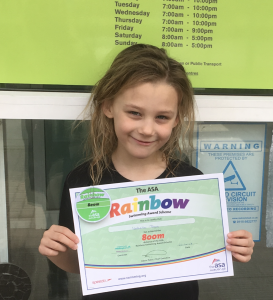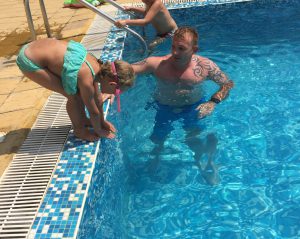

“Hello! I hope you are all keeping safe and well. Let me introduce myself, my name is Claire and I am a Mental Health First Aid England Instructor, founder of The Mind Map project and The Anxious Exercise Club and, programme lead for the Tricky to Talk programme at Nottingham Forest Community Trust.
I also live with a long-term anxiety condition which I manage day-to-day. Back in 2015, I had a relapse in my long term anxiety condition, which made leaving my home very difficult. Some days, it took all my strength to walk to the car to be able to go to work, and that did not leave me very productive for the rest of the day! I knew that activity and exercise were good for me and that it would ease the symptoms of my mental ill-health. But the anxious voice in my head was a lot louder when telling me that the outside was scary and there was no point in even trying.
Towards the end of 2015, I became more and more unwell, with long-term pain, muscle stiffness and overwhelming fatigue. I was referred to the hospital and was diagnosed with fibromyalgia. I was given guidance on how to manage my condition and one of the overwhelming pieces of advice was to do more activity. I knew I had to listen to the doctors, but I also still had the anxious voice.
So I made a compromise. I walked to the post box and back. It was about 500 yards and I started doing it once a day. Then I walked to the church just next to the postbox and then onto the bench. Every week, I added a small chunk onto my walk and it didn’t feel unmanageable, even the anxious voice quietened down. I began a circuit each evening, I simply did three or four rounds of the circuit.

This simple activity allowed me to rebuild my life. It wasn’t instant, there wasn’t a miracle cure. I still live with a long term anxiety condition that I manage each day. But I do experience the benefits of what activity can bring to my life and how it helps me to manage my anxiety.
The reason I am talking about this today is that I am finding myself in a very similar situation as we live in the current lockdown situation. I’ve found exercising very difficult due to fear and anxiety. So I wanted to take some time to talk about getting active whilst living with a mental health condition and whilst living in lockdown.

Today, I went for a small walk.
It took some bargaining with the anxious voice, but I felt able to get up a little earlier and take a few steps outside. It wasn’t about distance or the number of steps I completed, it was about breathing and feeling the sunshine. It was about letting my whole body know that whilst these are extremely frightening times, these few small steps can benefit our mental wellbeing and help us to get through this time.
There is lots of information out there currently about how we can get active in our homes, which is fantastic. But it can also be overwhelming, so I hope this post, and future ones, will let you know you are not alone.”
Look no further than our A–Z of Nottingham Swim School to understand why.

Active – Children that are active are happier, healthier and more able to learn. Increased activity is essential for a child’s development.
Butterfly stroke – They’ll learn the skills to swim this more complicated of strokes during their lessons.
Competitiveness – Swimming is great for developing positive competitiveness as each child strives to achieve the next badge or move through the stages. If they join a swimming club, they’ll experience competitive teamwork too.
Diving – Knowing how to safely launch yourself headfirst into water is a skill taught during swimming lessons.
Energy – Swimming builds your child’s muscles and lung capacity, giving them more energy to achieve.
Free stuff – All Nottingham Swim School members receive free access to all of our public swim sessions across the city! They also get a swim hat on joining and at each new stage reached too!

Graduation – As each skill is perfected your child will graduate, receiving badges, medals and certificates of achievement.
Health – Swimming is great for your child’s heart and circulation, providing natural, low-impact resistance to build muscle and release those happy endorphins.
Intelligence – Holding your breath can reportedly increase intelligence levels as swimming is the best exercise for building lung capacity, which improves the ability to take in more information.
Joints – The natural support and resistance provided by water means swimming is a fantastic activity for developing strong joints.
Kick – Each swim stroke has a different style of kick, and your child will master them all by the time they reach Stages 8-10 of our Swim School.
Lifesaving – Being able to swim is a real life saver and after all the key skills have been achieved your child can train to become a rookie lifeguard too.
Motivation – Motivational instructors will ensure your child gets the best from their weekly lessons.
No equipment necessary – Apart from a swimsuit, there’s no expensive equipment needed to swim.

Open to all – Some of our pools offer specialist sessions for children with a disability or additional needs. Some also host lessons for older children and adults.
Portal – With our Swim School portal you can track your child’s progress and move class when they’re ready.
Quality time – Whether you’re in a pool or by the seaside, swimming is a great opportunity for parents and children to bond, sharing quality time in otherwise busy lives.
Related sports – Being able to swim gives opportunities to try other sports like water polo, surfing, competitive diving or even triathlon.
Safety – Safety is an essential part of learning to swim and your child learns to be aware of hazards in and around water.
Training – To become a competent or advanced swimmer, training is essential, providing your child with a routine to follow that will set them up for life.
Underwater skills – Between stages 8 and 10 children learn underwater skills like synchronised swimming.
Vitality – Swimming’s benefits for physical and mental well-being mean your child with have more vitality and vigour.
Weight – Water is around 800 times denser than air, so your child will burn more calories, keeping your child at a healthy weight.
X-Factor – Swimming is such a great sport for health, well-being, social skills and mental attitude, your child will develop the X-Factor to help in all aspects of their life.
Year-round activity – Come rain or shine, winter or spring, swimming can be enjoyed at any time.
Zzz – Swimming uses huge amounts of energy, so your child will sleep better after exercising.
For more information visit Nottingham Swim School or call us on 0115 8761600 to book a lesson at your nearest leisure centre.